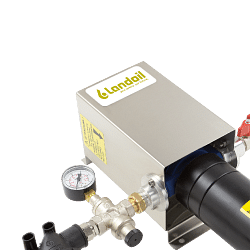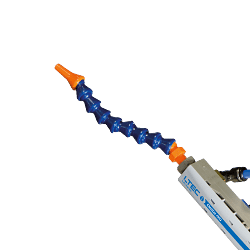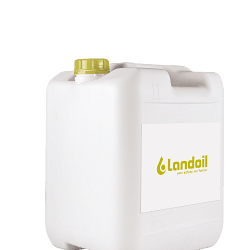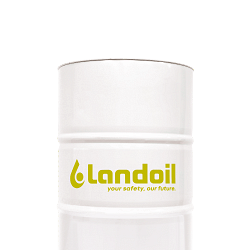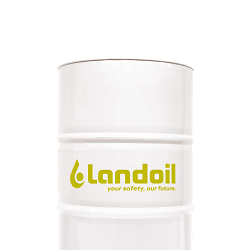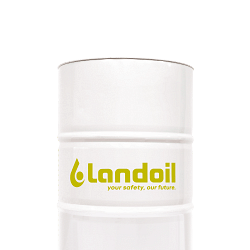Hydraulic oil is an essential component in the operation of industrial machines, especially in machine shops where efficiency and reliability are paramount. This fluid not only lubricates, but also transmits power through the hydraulic systems, ensuring that machines operate smoothly and smoothly. In this in-depth look, we will explore in detail what hydraulic oil is, what it is used for, how it is used, the benefits of using it, and answer some frequently asked questions.
Understanding hydraulic oil: a technical overview
Hydraulic oil is a fluid used in hydraulic systems to transmit energy. It is mainly composed of base oils and additives that improve its properties, such as oxidation resistance, corrosion protection and thermal stability. Base oils can be mineral, synthetic or biodegradable, each with specific characteristics that make them suitable for different applications.
Main functions of hydraulic oil
Hydraulic oil performs several critical functions in hydraulic systems. First, it acts as a power transmission medium, transferring the energy generated by the hydraulic pump to the various system components. It also lubricates moving surfaces, reducing friction and wear. Hydraulic oil also helps dissipate heat generated during operation, keeping the system temperature within safe limits. Finally, it protects components from corrosion and contamination, prolonging system life.
Using hydraulic oil in machine shops
In machine shops, hydraulic oil is used in a wide range of machinery, including presses, lifters, machine tools and automation systems. Choosing the right type of hydraulic oil is crucial to ensure optimal performance and reduce downtime. It is important to consider factors such as viscosity, compatibility with system materials and operating conditions such as temperature and pressure.
Advantages of using hydraulic oil
The use of high-quality hydraulic oil offers numerous advantages. Firstly, it improves system efficiency by reducing energy losses and improving system response. In addition, good hydraulic oil reduces component wear, decreasing the need for maintenance and repairs. Protection against corrosion and contamination extends system life, reducing long-term operating costs. Finally, hydraulic oil contributes to quieter and smoother machine operation, improving the working environment.
Frequently asked questions about hydraulic oil
1. What is the difference between mineral and synthetic hydraulic oil?
Mineral hydraulic oil is derived from petroleum and offers a good balance between performance and cost. Synthetic oil, on the other hand, is chemically produced to offer better performance in extreme conditions, such as high or low temperatures. The choice between the two depends on your specific operational needs.
2. How do you determine the correct viscosity for a hydraulic system?
The viscosity of the hydraulic oil must be chosen according to the operating conditions of the system, such as temperature and pressure. Too low a viscosity can cause leaks and wear, while too high a viscosity can reduce the efficiency of the system. It is advisable to consult the manufacturer's manual or an expert to determine the correct viscosity.
3. How often should hydraulic oil be changed?
The frequency of hydraulic oil change depends on system use and operating conditions. In general, it is advisable to regularly check the oil for signs of contamination or degradation and replace it according to the manufacturer's recommendations.
4. What are the signs of degraded hydraulic oil?
Signs of degraded hydraulic oil include a change in colour, an unpleasant smell, the presence of particles or foam and a decrease in system performance. If you notice these signs, it is important to replace the oil to prevent damage to the system.
5. Is it possible to mix different types of hydraulic oil?
In general, it is not advisable to mix different types of hydraulic oil, as they may have incompatible additives that reduce system performance. If it is necessary to change oil types, it is important to completely clean the system before adding the new oil.
Conclusion
Hydraulic oil is a key element in the efficient and reliable operation of machines in machine shops. Understanding its functions, choosing the right type and keeping it in good condition are essential steps to ensure the longevity and optimal performance of hydraulic systems. With proper hydraulic oil management, workshops can reduce operating costs, improve productivity and create a safer and more comfortable working environment.
Read More Read Less








